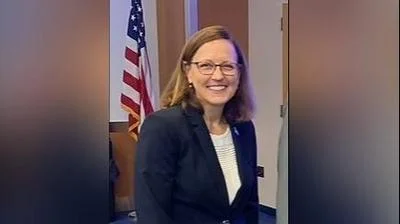WASHINGTON, DC - Energy and Commerce Committee Republican Leader Greg Walden (R-OR) delivered the following opening remarks today at a Subcommittee on Communications and Technology hearing on “Accountability and Oversight of the Federal Communications Commission."
As Prepared for Delivery
Good morning, I welcome all our returning commissioners, and of course our newest, Mr. Starks. I’m not sure what we should learn from the fact that the medical community in Kansas keeps producing telecom lawyers.
I’m pleased that subcommittee Chairman Doyle has convened this hearing and look forward to the important discussion on infrastructure.
And on this front, I very much appreciate the work of Chairman Pai and the Commission to accelerate broadband deployment, through public investment, spectrum policy, and just as importantly, the clearing of regulatory red tape.
Last session, Republicans and Democrats on E&C shared a successful commitment to reaching unserved communities with broadband dollars.
So, I’m not sure why the majority leadership chose to launch an all-Democrat rural broadband task force this week when we have worked together so productively in the past and shown conclusively that this is not, or at least should not be, a partisan issue.
I hope this is not a bad sign for prospects of working together on broadband infrastructure this year. Because this is important.
I recently held a town hall in Spray, Oregon, a rural community of about 150 people in my district. A social studies teacher explained during my town hall that, while the internet at the school is ok, he worried about the access his students have when they get home as education and homework become increasingly reliant upon the internet. Speeds and options are limited since they are several miles from the nearest commercial fiber line.
Folks in places like Spray don’t have the luxury of even 10 megabits to support basic streaming video, or online education and business opportunities. With scarce federal dollars, this is where our focus should be. So, I want to hear how the interagency consultation we legislated last year is coming along as we consider infusing much more than the six hundred million we did during the last Congress. Eliminating the digital divide will require a substantial investment, but focus is important, so we do not repeat the failures of the Obama stimulus plan.
On that note, let me also highlight the role that our friends on the electricity side do for our rural communities. We need them more and more as partners in these broadband deployments, whether they are sharing facilities or deploying broadband themselves, so in the process of doing the good work of clearing out the regulatory red tape for 5G, the Commission should make sure to maintain flexibility to address safety and technical concerns that may come up.
It is also imperative that we put a stop to 9-1-1 fee diversion so that states stop from using fees paid by consumers to support essential public safety services as slush funds. Judging from the FCC report in December, progress has been mixed, despite bipartisan attention to this issue. As Commissioner O’Rielly pointed out in his testimony, the diversion rate was as high as 90% in one state. This situation is very alarming as investment in Next Generation 9-1-1 (NG911) is also part of the infrastructure discussion. The estimated cost to taxpayers starts at $10-11 billion and could go several billion higher according to the Administration’s cost study.
As an author of the legislation that created FirstNet in 2012 via the Middle-Class Tax Relief Act, I am familiar with the commitments and the trade-offs we have made. What we do need to focus on, and the FCC can help us with today is how best to ensure that any successful infrastructure effort this year will not be undermined by the shameful practice of fee diversion.
Part of the FirstNet deal included an agreement by public safety to receive prime spectrum for broadband in exchange for T-band spectrum, which all agreed could be phased out over time once mission critical features are available. However, with the 2021 start date for the process impending, concerns have been raised about planning for the move.
So today I’m floating a new proposal that I welcome thoughts on as we reconcile the issues here. My draft would delay the start of the T-band process for another three years, to 2024. To be eligible for this delay, states and localities would simply need to comply with a very common-sense policy that bipartisan bills have already called for, which is to put an end to 9-1-1 fee diversion.
I look forward to hearing testimony from the Commissioners on these and many other important topics, and with that I yield.




